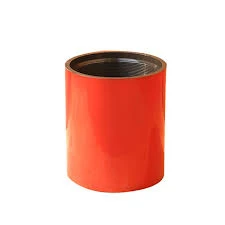- Afrikaans
- Albanian
- Amharic
- Arabic
- Armenian
- Azerbaijani
- Basque
- Belarusian
- Bengali
- Bosnian
- Bulgarian
- Catalan
- Cebuano
- Corsican
- Croatian
- Czech
- Danish
- Dutch
- English
- Esperanto
- Estonian
- Finnish
- French
- Frisian
- Galician
- Georgian
- German
- Greek
- Gujarati
- Haitian Creole
- hausa
- hawaiian
- Hebrew
- Hindi
- Miao
- Hungarian
- Icelandic
- igbo
- Indonesian
- irish
- Italian
- Japanese
- Javanese
- Kannada
- kazakh
- Khmer
- Rwandese
- Korean
- Kurdish
- Kyrgyz
- Lao
- Latin
- Latvian
- Lithuanian
- Luxembourgish
- Macedonian
- Malgashi
- Malay
- Malayalam
- Maltese
- Maori
- Marathi
- Mongolian
- Myanmar
- Nepali
- Norwegian
- Norwegian
- Occitan
- Pashto
- Persian
- Polish
- Portuguese
- Punjabi
- Romanian
- Russian
- Samoan
- Scottish Gaelic
- Serbian
- Sesotho
- Shona
- Sindhi
- Sinhala
- Slovak
- Slovenian
- Somali
- Spanish
- Sundanese
- Swahili
- Swedish
- Tagalog
- Tajik
- Tamil
- Tatar
- Telugu
- Thai
- Turkish
- Turkmen
- Ukrainian
- Urdu
- Uighur
- Uzbek
- Vietnamese
- Welsh
- Bantu
- Yiddish
- Yoruba
- Zulu
Stainless Steel Pipe Connectors for Durable and Reliable Connections in Various Applications
The Importance of Stainless Steel Pipe Couplings in Modern Industries
In the realm of piping systems, stainless steel pipe couplings play a crucial role in ensuring seamless connections between pipes and enhancing the integrity of various applications across multiple industries. These couplings facilitate the efficient flow of fluids and gases, making them indispensable components in plumbing, construction, oil and gas, food and beverage, and chemical processing among others.
What is a Stainless Steel Pipe Coupling?
A stainless steel pipe coupling is a mechanical fitting used to connect two lengths of pipe. These couplings can be threaded or unthreaded, depending on the specific application and design of the piping system. The corrosion resistance, strength, and durability of stainless steel make it an ideal material for these components, particularly when dealing with harsh environments or substances that may lead to pipe degradation.
Types of Stainless Steel Pipe Couplings
There are several types of stainless steel pipe couplings, each designed for specific functionalities
1. Straight Couplings These are used to connect two pipes of the same diameter and are the most common type of coupling. 2. Reducing Couplings These allow for the connection of two pipes of different diameters by transitioning from a larger pipe to a smaller one.
3. Flange Couplings Typically utilized in high-pressure applications, flange couplings attach to flanged pipes, providing a secure and leak-proof connection.
4. Socket Weld Couplings Ideal for small pipes and high-pressure systems, these couplings allow the pipe to be inserted into a socket, which is then welded in place.
5. Compression Couplings Used frequently in transitions between different materials, these offer a flexible option for connecting pipes without welding.
Advantages of Stainless Steel Couplings
stainless pipe coupling

1. Corrosion Resistance One of the most significant advantages of stainless steel is its ability to withstand corrosion from various chemicals and environmental factors. This property extends the life of the piping system significantly.
2. Durability Stainless steel is known for its strength and toughness. Couplings made from this material can withstand high pressure and extreme temperatures, making them suitable for diverse applications.
3. Hygienic Properties In industries such as food and beverage processing, stainless steel’s non-reactive nature makes it a preferred choice, as it does not contaminate the products being transported.
4. Ease of Installation Many stainless steel couplings are designed for simple installation, requiring minimal tools. This efficiency can save time and reduce labor costs in construction and maintenance.
5. Recyclability Stainless steel is 100% recyclable, making it an environmentally friendly choice for sustainable practices in industrial applications.
Applications of Stainless Steel Pipe Couplings
Stainless steel pipe couplings find applications in various sectors including
- Water Supply Systems Providing reliable connections in municipal water systems. - Oil and Gas Industry Ensuring secure connections in pipelines that transport crude oil and natural gas. - Pharmaceuticals Maintaining the integrity of sterile environments during product manufacturing. - Food Processing Enabling safe transportation of food and beverages without contamination.
Conclusion
Stainless steel pipe couplings are vital components in modern piping systems, offering a range of benefits that enhance the efficiency and reliability of various industrial processes. With their durability, resistance to corrosion, and ease of installation, they serve a pivotal role in maintaining the functionality of pipelines across multiple sectors. As industries continue to advance, the demand for high-quality fittings such as stainless steel pipe couplings will remain a priority, ensuring safety and efficiency in fluid transfer processes around the globe.
-
Tubing Pup Joints: Essential Components for Oil and Gas OperationsNewsJul.10,2025
-
Pup Joints: Essential Components for Reliable Drilling OperationsNewsJul.10,2025
-
Pipe Couplings: Connecting Your World EfficientlyNewsJul.10,2025
-
Mastering Oilfield Operations with Quality Tubing and CasingNewsJul.10,2025
-
High-Quality Casing Couplings for Every NeedNewsJul.10,2025
-
Boost Your Drilling Efficiency with Premium Crossover Tools & Seating NipplesNewsJul.10,2025







